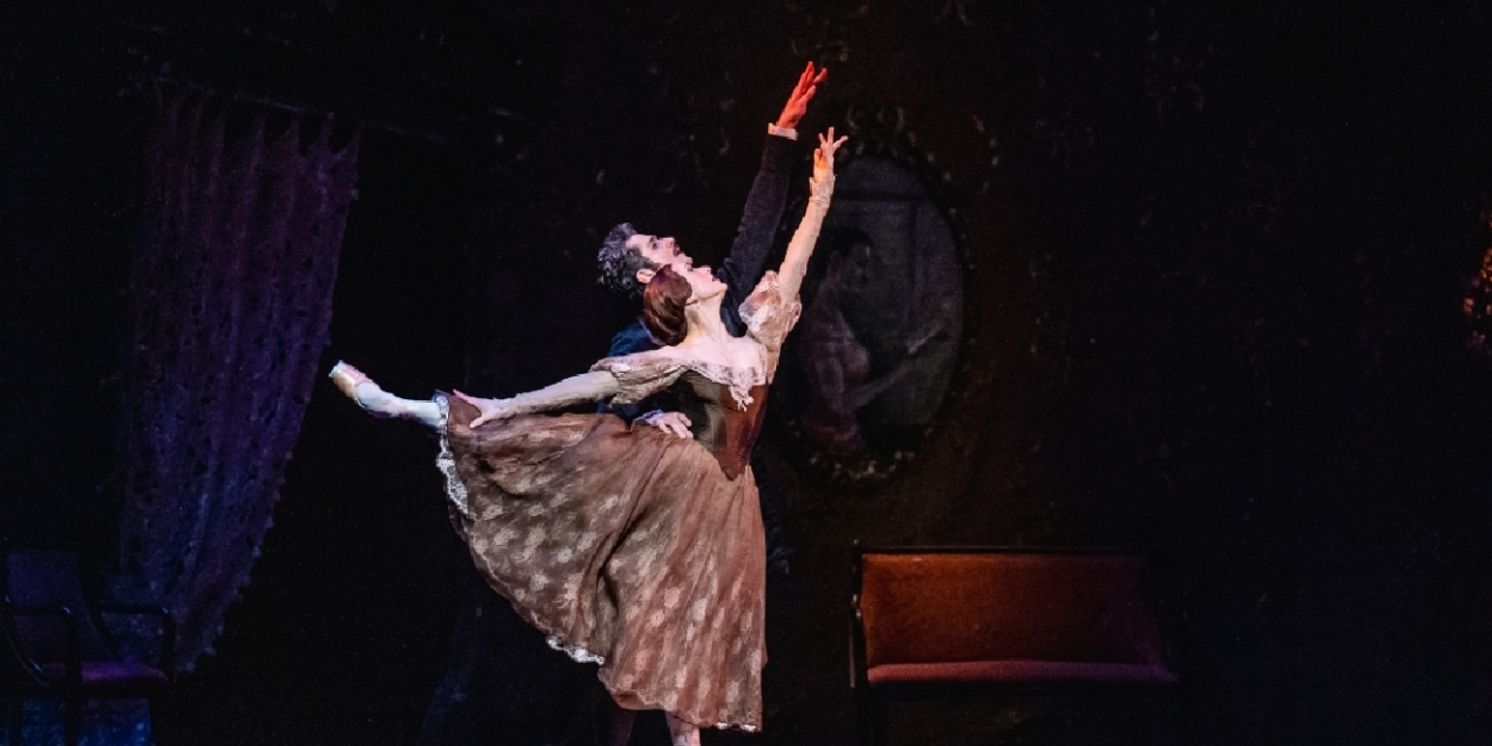
![]() Alexander Pushkin called his (1825–1832) novel Eugene Onegin, and John Cranko followed suit with his 1965 ballet Onegin. However, when one watches the work, it's Tatiana that springs to mind more than anyone else.
Alexander Pushkin called his (1825–1832) novel Eugene Onegin, and John Cranko followed suit with his 1965 ballet Onegin. However, when one watches the work, it's Tatiana that springs to mind more than anyone else.
Cranko took the predictable love melodrama - I want you, I don't, actually I do, well now I don’t - and turned it into a full-length, three act ballet. It divides people - some love it, some less so. I definitely think it has strong moments throughout, and an overall, refined structure that can't be denied. Add to that the layered, textured sets by Jürgen Rose and Tchaikovsky's lusher than lush score, and things are likely going to work out.
%2C%20William%20Bracewell%20(Lensky)%20in%20Onegin%20%C2%A92025%20ROH_%20Ph%20Andrej%20Uspenski.jpg?format=auto&width=1400)
Photo credit: © 2025 ROH, Andre Uspenski
The Royal Ballet opened their run on 22 January with prima ballerina Marianela Nuñez - as is often the case - in the lead role of Tatiana with Reece Clarke as her Onegin. They're a handsome pair no doubt, and are well supported by Akane Takada as Olga (Tatiana's younger, spirited sister) and William Bracewell as her beau, Lensky.
Act 1 is very good value for money. The main characters get lots of airtime, there's dance everywhere you look and the story really starts to get fleshed out. Takada is effervescence personified, and Bracewell does dashing like nobody else. Clarke is a statuesque, distant Onegin and Nuñez's reading of young Tatiana is reserved, verging on too yielding for me. That said, she and the character truly come alive in the closing Mirror pas de deux. Her dancing infused with more abandon than one normally sees. More please.
Act 2 largely takes place at a party where things really start to fall apart. Onegin is bored so plays havoc with people's emotions. He spurns Tatiana's love letter, flirts with Olga (with Takada going from strength to strength) and causes Lensky to demand a duel between the two.
Cranko interweaves the narrative seamlessly through group dance and principal divertissement, yet somehow the drama didn't quite land on the night. The second scene of the duel saw things communicate more successfully. Bracewell tackled the infamously hard, Lensky adagio solo with bravery and risk. Moments felt a bit sketchy, but the overall impact was one of genuine emotional distress in motion. Things don't end well for Lensky, and likewise for Onegin who's immediately bereft with guilt. And the act closes with Tatiana finally taking control of her emotions. She, and Nuñez finally raise their eye level until Onegin visibly crumbles in reaction to it. Good stuff.
In Act 3 we meet the mature Tatiana (in breathtaking red), conjoined in marital bliss with Prince Gremin, performed by a very chivalrous Lukas Bjørneboe Brændsrød. Their ballroom pas de deux is one of constant quiet content, though it can be difficult not to see Kenneth MacMillan’s Winter Dreams at times (which has the same music).
%20in%20Onegin%20%C2%A92025%20ROH_%20Photographed%20by%20Andrej%20Uspenski%20(1).jpg?format=auto&width=1400)
Photo credit: © 2025 ROH, Andre Uspenski
The weary Onegin, dithering on the sidelines, verges on annoying, but I'm unsure if that's down to the role or interpretation. The end of the ballet sees Tatiana doing the spurning this time, and the ultimate pas de deux is a masterpiece. The movement dialogue between resist and release is high drama but equally very believable. This is what love does to people; it makes them irrational and unpredictable. Both Nuñez and Clarke dance with conviction and poise, particularly in the final few minutes.
All in all Onegin is a very successful night at the ballet. The company dance the original choreography evidently well, and the meaty roles are being tackled with gusto…but there's work to be done. Lucky them!
Onegin runs at Royal Ballet and Opera until June 12
Photo credits: © 2025 ROH, Andre Uspenski
Reader Reviews
Videos

